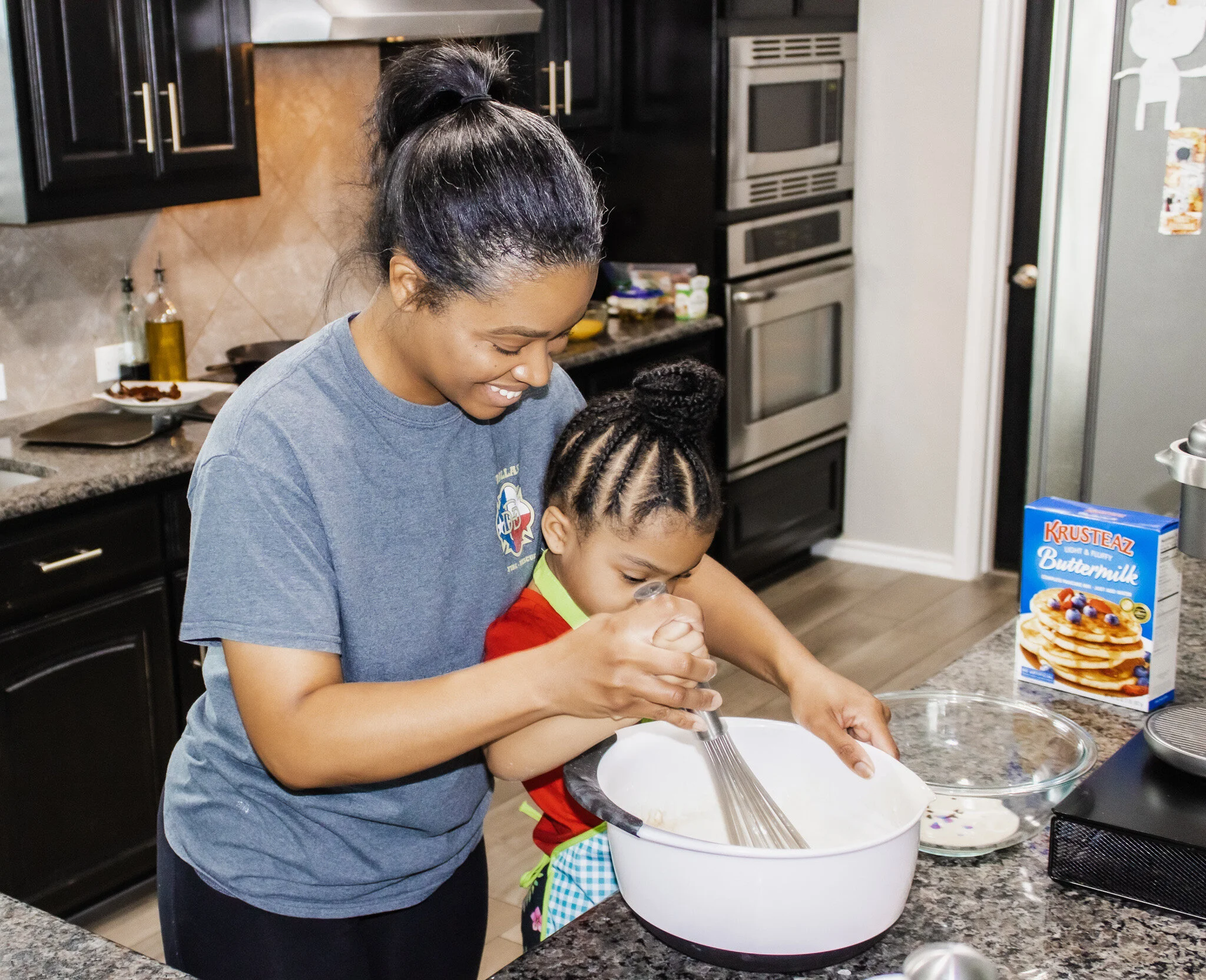Loving Them Right: Love Languages for Kids!
I don’t love my kids the same.
If I did, I would miss out on loving them in the unique ways they each desire to be loved. Each of my children has very unique needs and all speak a different love language. For Jayce, my emotional middle, acts of service allow him to feel seen, appreciated, and confirm his special place in our family. Because we all know the middle child can often feel forgotten and unseen. At least that’s what Jayce yells 10 times a day!
What are the 5 love languages?
We’ve all heard of love languages, especially when it comes to intimate relationships. However, we fail to realize that our perception of love and how we desire to receive it, is established during childhood. As a child begins to maneuver through the world around them, their environment, personality, and relationships dictate how they desire to be loved. As parents and caregivers, it is very important to identify their love languages and begin loving them in ways that make them feel special.
The Five Love Languages
Affirming words: words of affection and endearment, praise and encouragement.
Acts of service: services for your child that they see as valuable.
Quality time: focused, undivided attention, being together.
Gifts: giving and receiving of undeserved gifts.
Physical touch: hugs, cuddles, kisses, and pats on the back.
Affirming words
Compliment and praise them for specific things – “I love how you made your bed today!”, “You’re such a fast runner!”
Put encouraging notes for them to find in their lunch box.
Say positive things about them to others, while they are present.
If you’re away from your child, send an email, text, or call them.
Quality time
Ask them how their day is going. Listen and engage in the conversation.
Give them your undivided attention. Read their favorite bedtime story or play their favorite board game. Find a hobby to do together.
Do chores together.
Go for a walk together or a “date” to their favorite ice cream shop or to grab a bite to eat.
Gifts
Leave an unexpected treat in their bag or under their pillow.
Give them a small gift if they had a bad day.
If you’ve been away, bring them a small gift. Showing them you thought about them while you were gone.
Acts of service
Try to fix a broken toy or sew a torn piece of clothing.
Support them in a hobby or skill.
Make a favorite meal as a surprise (even if you make it every week!).
Physical touch
Give them frequent hugs and kisses.
Cuddle up under a blanket to watch TV.
an extra-long hug before bed
Tickle fights!
Identifying your child’s love language is easier than you think. Children are honest about their needs. They may not be verbally capable of expressing them but their reactions to how we love them (or the lack of feeling loved) grants us a better understanding of what love looks and feels like to them. Children can benefit from receiving love in all five ways and they should. However, using my children as an example, you can see how each child has a dominant love language. That allows them to receive love in a unique and personal way.
Let’s start with my oldest, 14-year-old Jaden.
Jaden’s love language has always been affirming words. While he appreciates being loved in all 5 ways, receiving words of affirmation changes him. His face lights up, there’s a difference in his attitude, how he responds to those around him and how he views himself. He feels loved when those he loves provides him with words of affection, endearment, praise, and encouragement.
I struggled with this. When Jaden was younger we struggled with his behavior. There were times when I couldn’t give him words of encouragement because I was so worn down from trying to manage his disruptive behaviors. In my mind, I didn’t believe he ‘deserved’ to hear those things. In hindsight, withholding those special acts of love increased those problem behaviors. His negative behavior soon turned into an attempt to gain attention from me, regardless of the outcome.
Words of affirmation give him a special place in our little world. It builds his confidence and allows him the opportunity to realize how much he’s loved and how valued he is in our family
Now that he’s older, hugs and kisses from mom just aren’t his thing. Most days I have to beg for a hug or a kiss goodnight. However, once I began speaking his language, those hugs and kisses come a lot more frequently and more willingly.
On to Jayce, our 7-year-old.
Jayce checks all the boxes for the ‘stereotypical’ middle child.
Emotional, feel unseen, always thinking no one is on his side…the list goes on and on. For him, feeling loved translates into Acts of service. Taking the time to try and fix a broken toy. Even if I know it can’t be fixed. Helping him cut out a picture for a craft he’s trying to complete. Making his favorite meal at least once a week. These are all acts of service that make him feel special. Often times eliminating those ‘middle child’ feelings and replacing them with a love he can identify with.
Last but not least, Journey. Our 4-year-old.
My bilingual love! She is the child that absolutely needs quality time and lots of physical touches!
I don’t think there is enough time in the day that can satisfy her need for quality time. Thank God I don’t run short on hugs, cuddles, and kisses!! For Journey, saying I love you means playing with me. Saying I love you means giving me your undivided attention. It means answering all my questions in a thoughtful loving way. It means letting me sit with you while you work or lay next to you while we watch a movie. It means holding my hand when we’re at the store, random kisses throughout the day, and extra goodnight hugs at night.
While Journey’s love language is the most exhausting (for me at least) it’s one of the most important things she needs during this stage of her life. What she learns about love now, will transcend into every area of her life later.
Love languages are essential to establishing healthy, happy childhoods. Research regarding childhood shows the correlation between the ‘quality’ of love one received during childhood to future health and happiness, higher self-esteem, improved academic performance, improved communication, and fewer psychological and behavior problems.
Help your child transition through all seasons of life with confidence and assurance. Recognizing their value in the world and knowing they have a support system that loves them exactly how they need to be loved and accepts them for exactly who they are.


